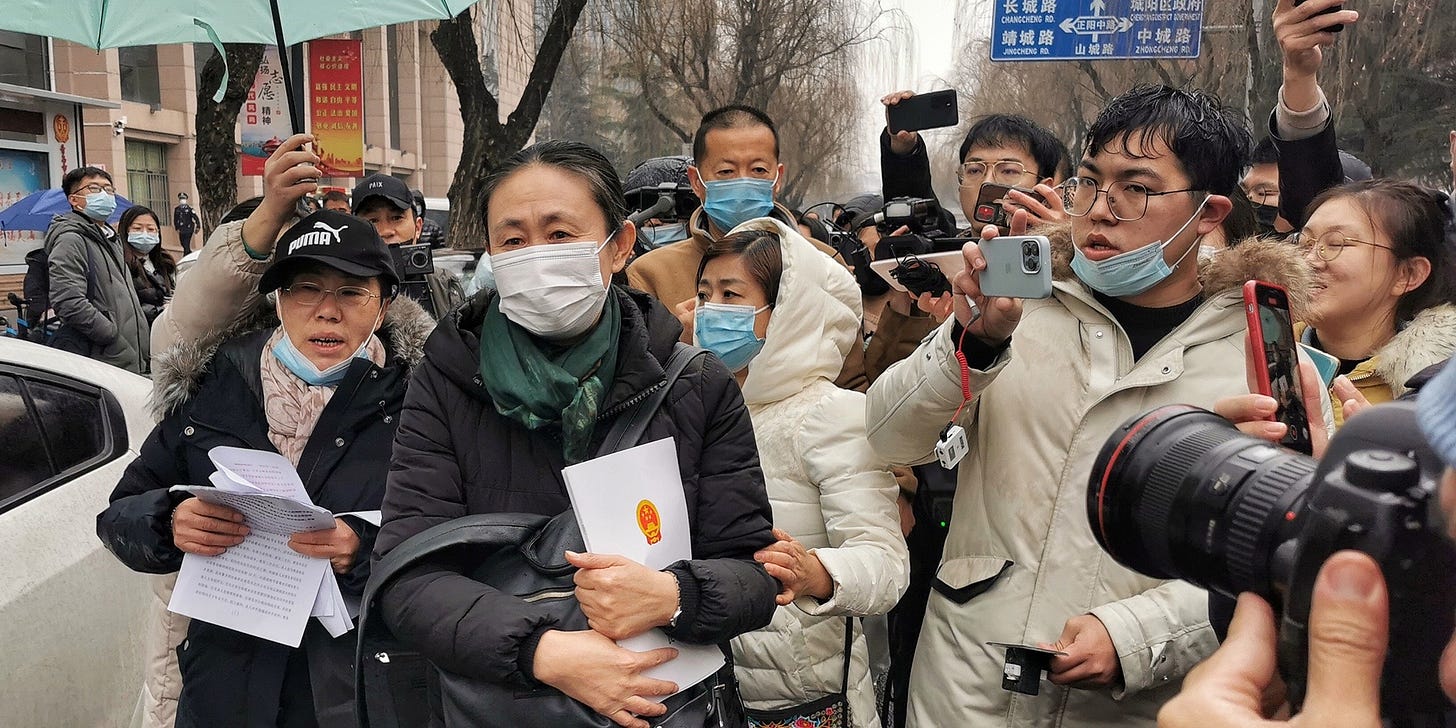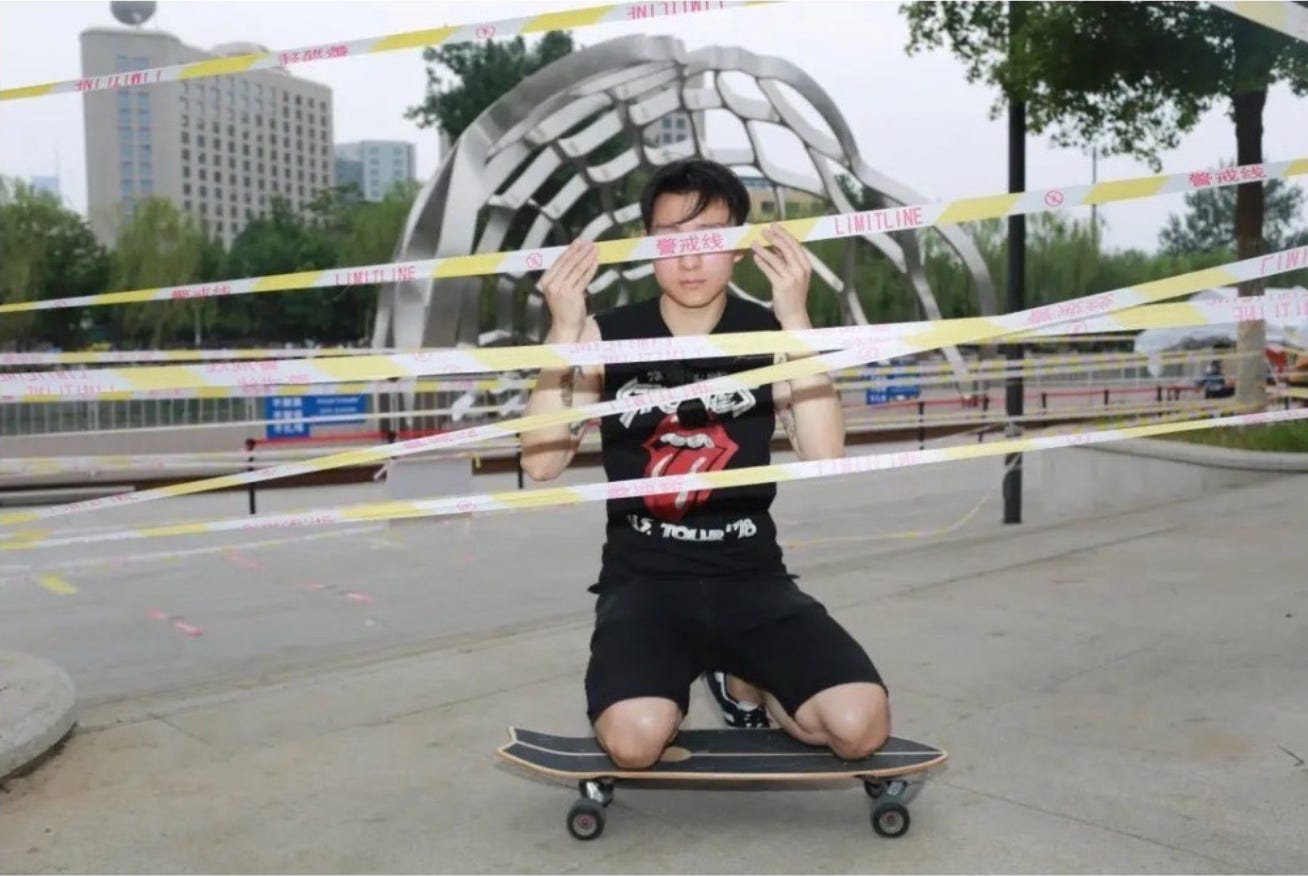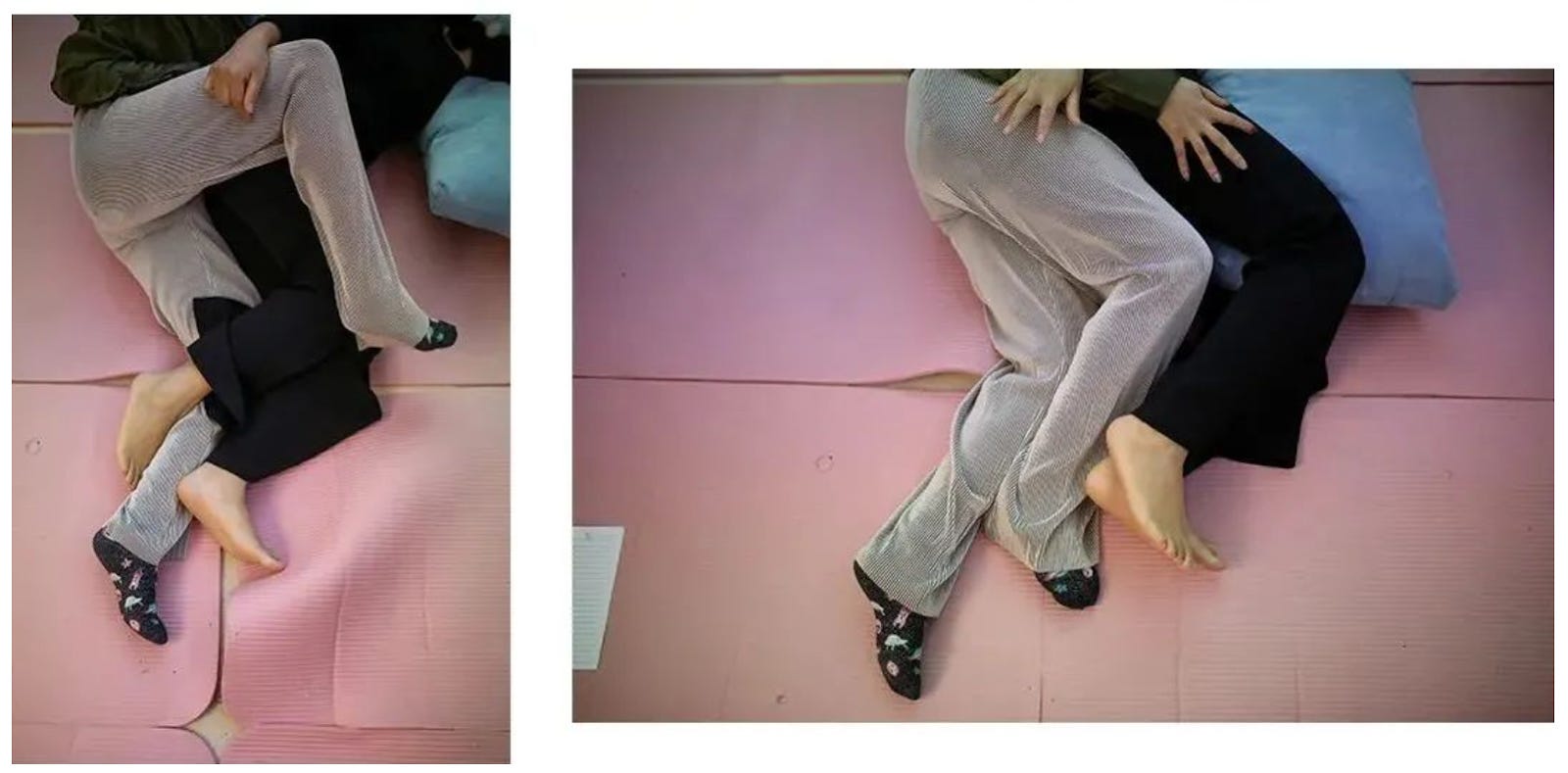A Ukrainian in Beijing (Far & Near Crosspost)
Plus a mother’s quest for justice, a picnic by the Liangma River and more
Hi there,
For this edition I wanted to spotlight the Far & Near newsletter, a fantastic new substack this week celebrating its first anniversary. It focuses in particular on Chinese visual artists, in so doing providing unique perspectives on modern China. (This is not a sponsored post I just think what they’re doing is great).
Jordan
1. A Monologue about Home
In response to Russia’s invasion of Ukraine, a group of filmmakers from the New Asian Filmmaker Collective (新亚洲影志) made a series of short films, part of an anti-war campaign titled “Against the War, in the Name of Cinema.” Guligo Jia, a Beijing-based filmmaker and photographer, centered her film on Mark, a Ukrainian student who talks about his fond memories of home and coping with painful reality.
The most moving part of the film is when Guligo and Mark make a connection beyond their filmmaker-subject relationship. It culminates in a brief scene where Guligo joins Mark for a meal.
This unconventional decision to show the filmmaker and the subject eating together serves as a reminder that solidarity needs to extend beyond posting on social media (which is heavily censored in China). It takes a lot more effort to reach out, to listen, and to try to understand.
ChinaTalk is hiring! I’m looking for 1-2 folks to join Callan and me part-time. Here are google forms to apply for the editorial and business manager positions.
2. Justice for My Daughter
In November 2016, a 24-year-old Chinese student named Jiang Ge was fatally stabbed in the hallway outside her shared apartment in Tokyo. The perpetrator was Chen Shifeng, her roommate’s ex-boyfriend. Chen was sentenced to 20 years in prison, but for Jiang Qiulian, the victim’s mother, the verdict was just the beginning of a years-long pursuit of justice for her only daughter.
Independent photographer Xia Tian, whose photos are linked above, was one of the few journalists who continuously documented the mother’s life since the first trial—first in Japan, then in China.
In contrast to limited international coverage, the case has made waves and ignited public debates in China. The key controversy circles around the liability of the roommate Liu Xin (who later changed her name to Liu Nuanxin), since Liu has never openly acknowledged that she owes her survival to Jiang. In Japan, the Mainichi called the trial a “China media sensation” and suggested that public sympathy toward the victim stemmed from a shared “One Child Policy” experience.
Jiang Qiulian spent five years collecting evidence against Liu all the while fighting and winning multiple defamation lawsuits after internet trolls claimed she had misappropriated crowdfunded money for the Tokyo trial. On Jan. 10 this year, a court in Qingdao, Shandong province ruled Liu liable for Jiang Ge’s death.
A detail that stuck: one of the few times the mother paused for “entertainment” was to watch Mom, a 2017 Indian film directed by Ravi Udyawar about a mother seeking revenge for her stepdaughter’s death.
View here.
What Else We’re Seeing
Restaurants in Beijing have had to stop dine-in services since May 1 due to Covid-19 restrictions. With takeaway as the only option, the Liangma River banks have become a picnic destination for people who still want to hang out with friends over food and drinks. This series of photos, taken between May 13 and 22, shows the bustling life on the twin banks of the river: skaters, swimmers, live bands, and groups of picnic-goers sharing the space alongside hazmat suits, barricades, and “no gatherings” warning signs.
This essay follows the personal story of Yueyue, a sex therapist and coach in Shenzhen. In China, sex education is insufficient at best and non-existent at worst. However, demand for education and guidance is rising thanks to changing attitudes toward sex and growing awareness about sexual health and sexual harassment. Therapists and coaches such as Yueyue help fill the knowledge gap and improve people’s sexual happiness.
Song Ting makes psychedelic digital artworks that are mash-ups of elements from traditional Chinese art with animation and AI-generated poetry. The 27-year-old is also a true believer in the blockchain and an early adopter of NFTs. One of her NFT works was auctioned for more than $100,000 last year. One interesting observation from this piece, though, is that this supposedly decentralized technology nonetheless creates a market in China dominated by a small group of prominent NFT artists like Song.
About Us
Yan Cong is formerly a photojournalist currently pursuing a research MA in new media and digital culture in Amsterdam.
Beimeng Fu is a video journalist based in Shanghai. She is a lover of languages and documentaries.
Ye Charlotte Ming is a journalist and photo editor covering stories about culture, history, and identity. She’s based in Berlin and working on a book about her hometown’s German colonial past.
Writers: Beimeng Fu, Ye Charlotte Ming, and Yan Cong; Copy editor: Krish Raghav
Have thoughts, comments or ideas you want to share about this week’s ChinaTalk? Leave your feedback in the comments!
Thanks for reading,
Jordan






